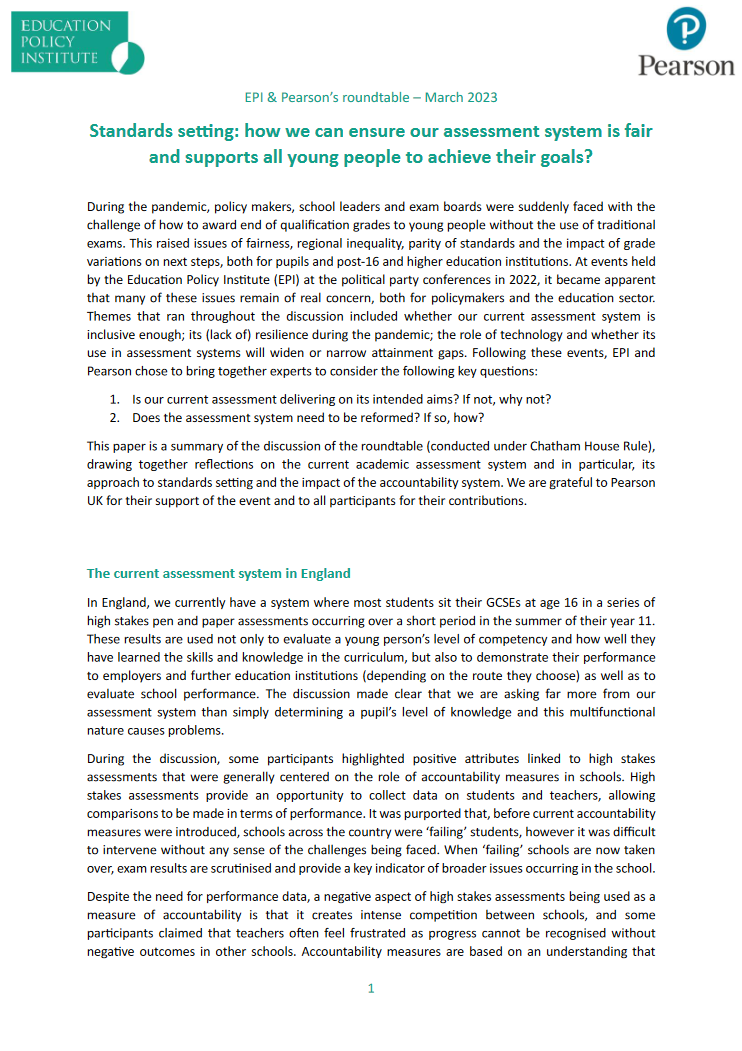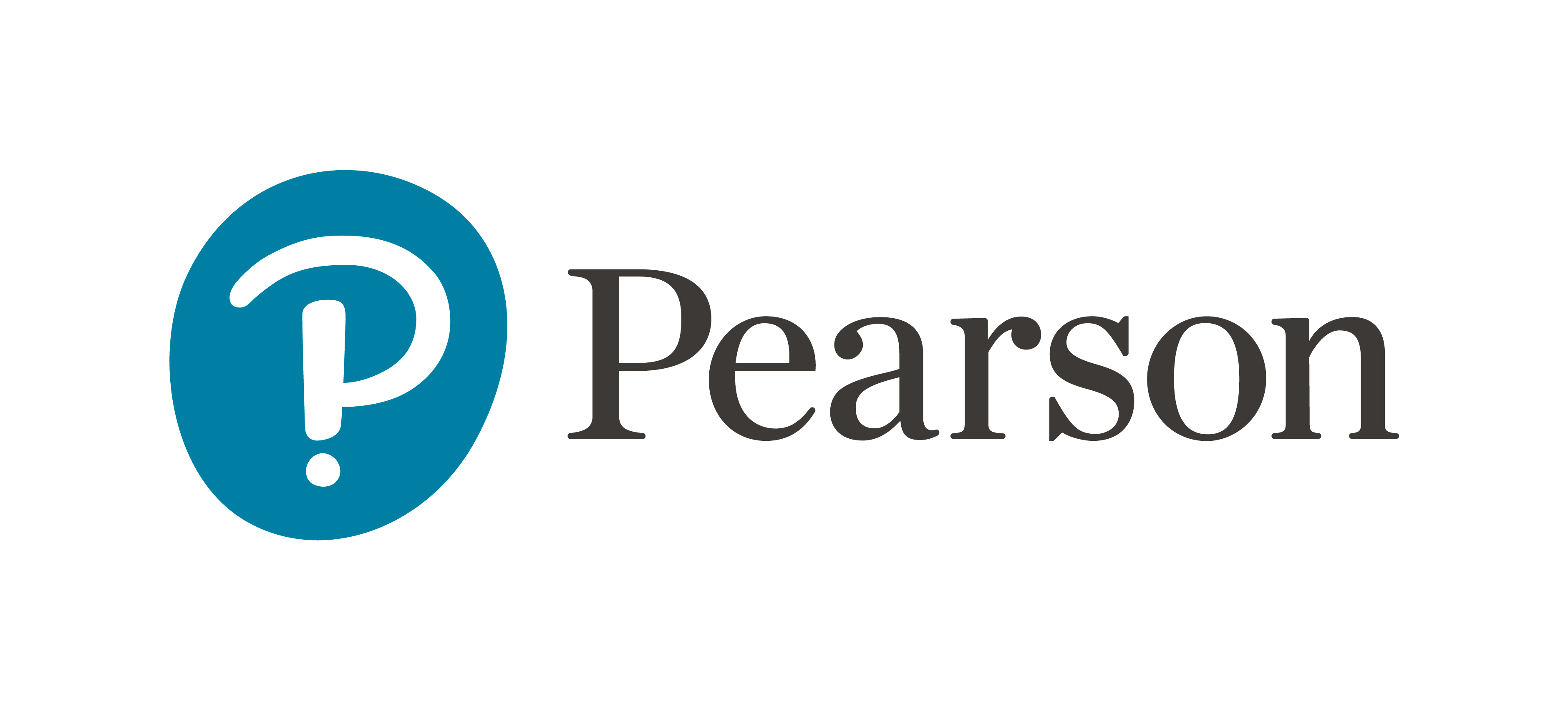During the pandemic, policy makers, school leaders and exam boards were suddenly faced with the challenge of how to award end of qualification grades to young people without the use of traditional exams. This raised issues of fairness, regional inequality, parity of standards and the impact of grade variations on next steps, both for pupils and post-16 and higher education institutions.
At events held by the Education Policy Institute (EPI) at the political party conferences in 2022, it became apparent that many of these issues remain of real concern, both for policymakers and the education sector. Themes that ran throughout the discussion included whether our current assessment system is inclusive enough; its (lack of) resilience during the pandemic; the role of technology and whether its use in assessment systems will widen or narrow attainment gaps.
Following these events, EPI and Pearson chose to bring together experts to consider the following key questions:
- Is our current assessment delivering on its intended aims? If not, why not?
- Does the assessment system need to be reformed? If so, how?
This paper is a summary of the discussion of the roundtable (conducted under Chatham House Rule), drawing together reflections on the current academic assessment system and in particular, its approach to standards setting and the impact of the accountability system. We are grateful to Pearson UK for their support of the event and to all participants for their contributions.
You can read this summary paper in full here:

This event and summary paper was kindly supported by Pearson.
“We’re the world’s leading learning company. Our ability to help people learn is built on our ability to grow with and adapt to a constantly evolving market. Our 20,000+ employees around the world are dedicated to doing just that: creating the digital first, accessible and sustainable learning resources that prepare tens of millions of people each year for a lifetime of learning.”


